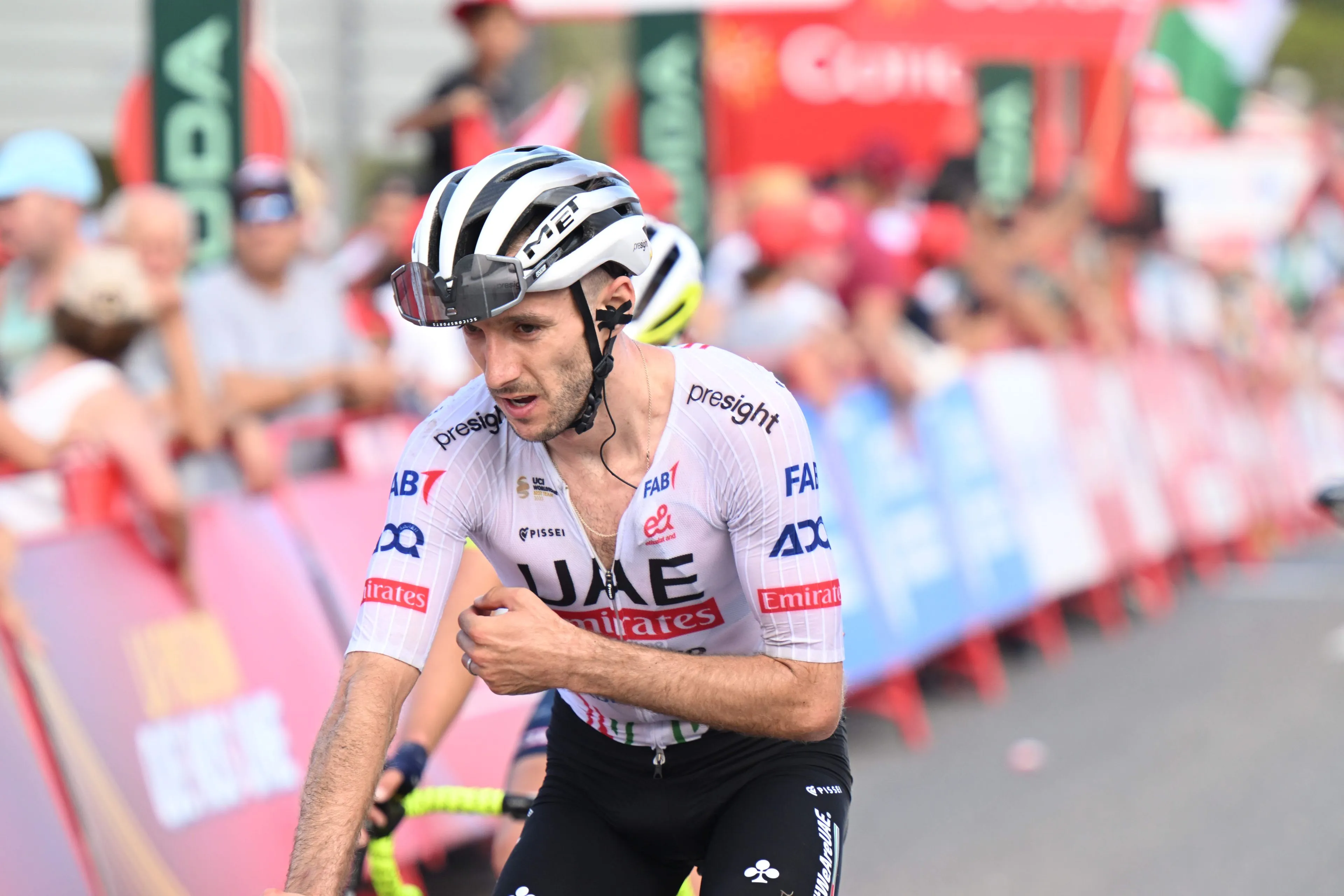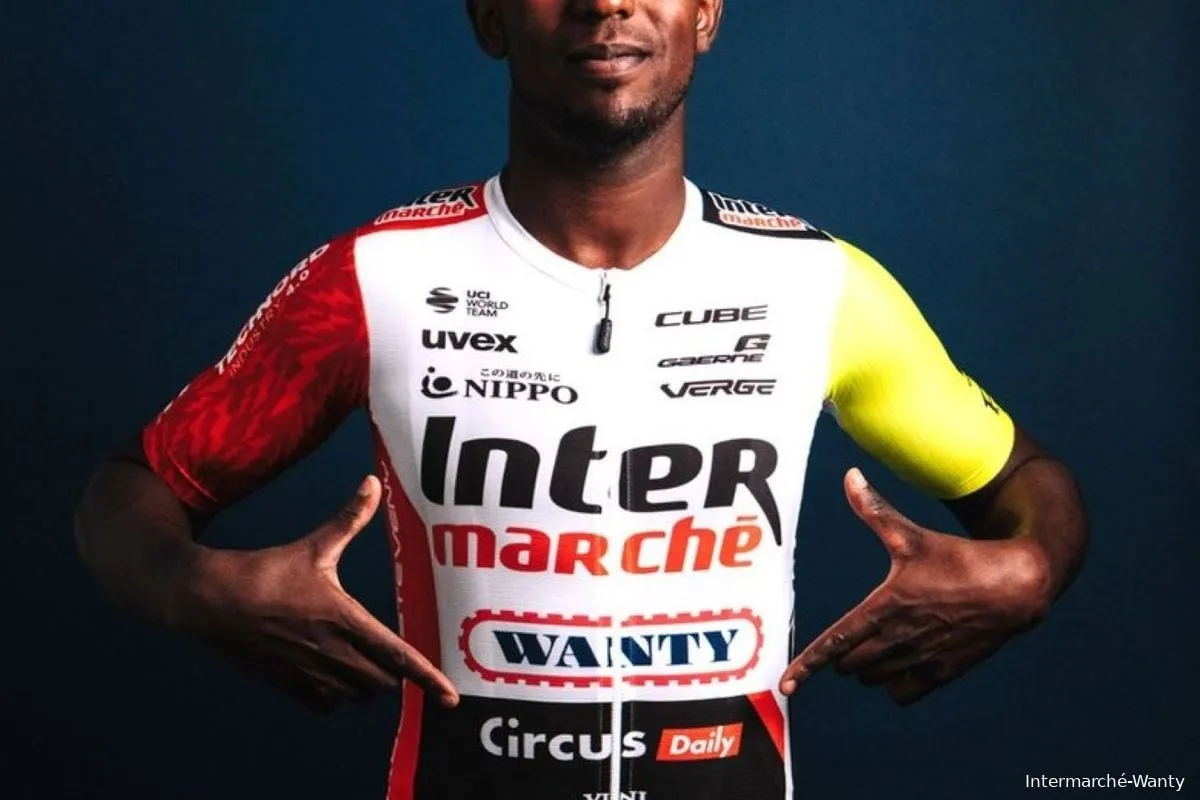Can Decathlon AG2R's big budget strike back against the 'Big Four' this spring?
CyclingFriday, 13 December 2024 at 09:14
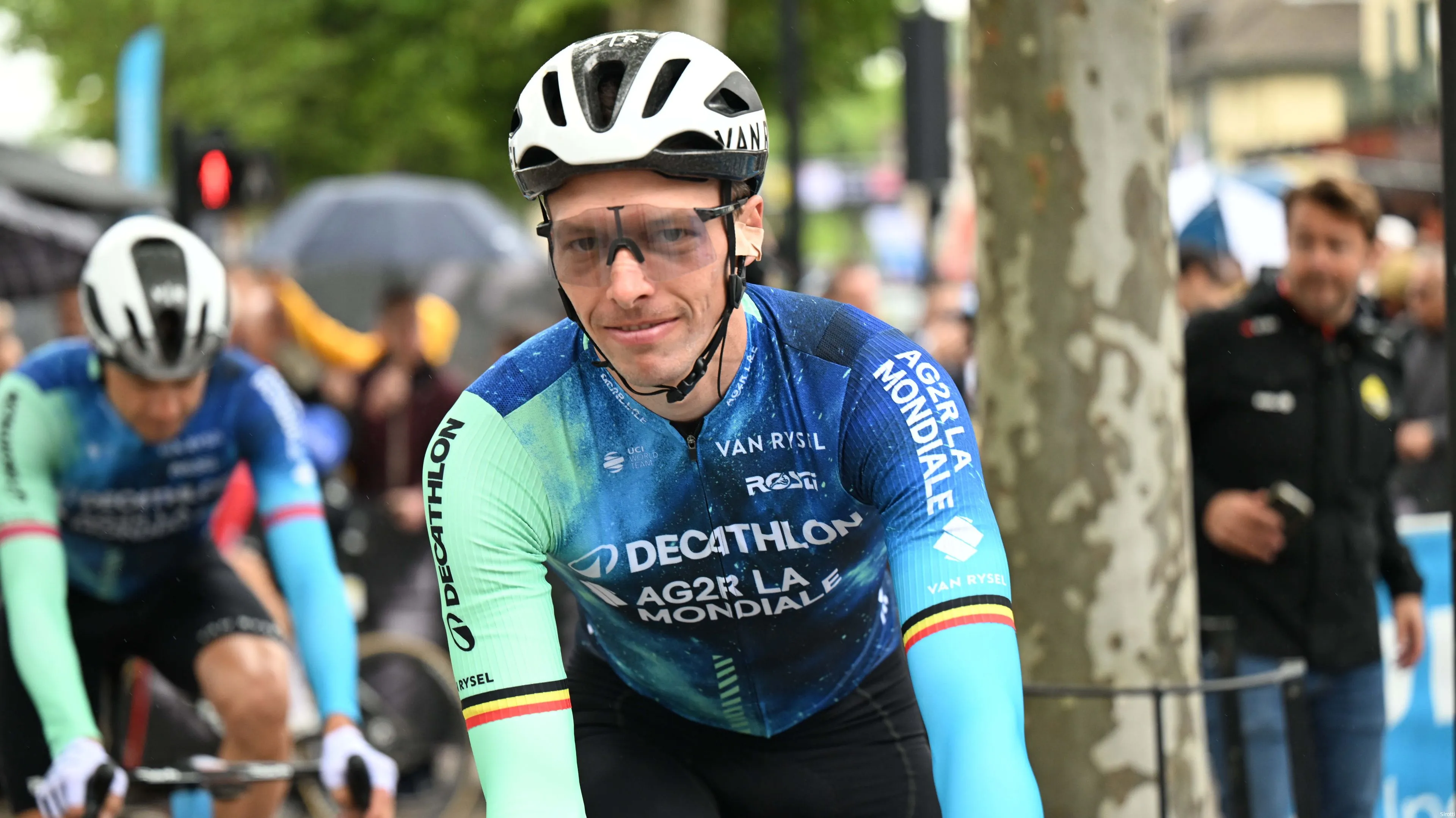
Looking at the WorldTour, a handful of major teams currently stand out. However, when considering the turnover of their main sponsors, the dynamic shifts. Decathlon ranks among the wealthiest sponsors but is opting for a gradual climb to the top. Oliver Naesen, the team's veteran rider, shares with IDLProCycling.com how this approach is taking shape.
Throw a coin in Naesen’s direction, and you’ll get a hundred euros’ worth of stories in return. The Belgian is always up for a chat and is considered one of the most spontaneous riders in the peloton, a quality appreciated by Decathlon AG2R. For eight years straight, he has been a mainstay of the team’s Tour de France lineup, delivering notable results in spring classics over the course of those same seasons.
With Decathlon coming on board as a major sponsor at the start of last year, the team has already seen significant changes. Last year, Naesen was among the first to rave about the Van Rysel bike. Now, he adds praise for the team’s aero bike, which reportedly saves around 13 watts. In addition to that, Decathlon will provide revolutionary new clothing to the WorldTour team. “We’re talking about saving 20 watts — these are incredibly fast suits,” Naesen tells us.
Read more below the photo!
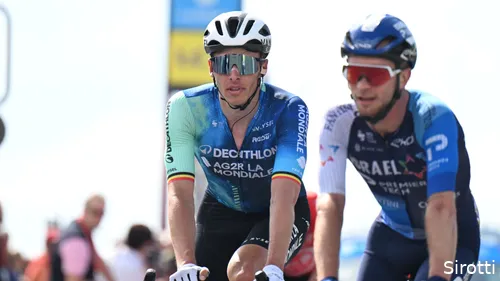
Interview Oliver Naesen (Decathlon AG2R)
Oliver, next year you’ll be the oldest rider at Decathlon AG2R.
"Gee...I thought no one was going to notice, but you did? Haha!"
Do you feel like the team’s elder statesman?
"Physically, yes, but at the dinner table too. When you’re working with riders who are 18 or 21, and the team’s average age is 26, you realize that at 34 you’re not one of the youngest anymore. But over the years, the dynamic stays the same, although of course you see a trend that riders are starting younger and younger."
Your team has become a trailblazer, especially with all the young talent being brought in.
"Absolutely. Nowadays, you either need a superstar from a mega-team, which is likely out of our budget, or you invest in young riders, hoping one truly breaks through and remains loyal to the team. Looking at the young talent coming through now, they all seem like potential champions. I’m genuinely excited about it."
Does this change your role?
"It does. My role as captain is becoming more integrated. During training camps in Spain, it’s expected that I spend time with the younger guys, answering their questions. Not just about racing, but also about life as a pro. They often don’t fully understand what that looks like.
We’ve already spent time in Flanders to scout the classics. You see young riders who’ve never ridden on cobblestones, climbed those hills, and who don't know those key points in the race. It’s all new to them. They might have been dominant at the youth level, but it’s a whole different ballgame in the pros."
Is there a risk things are moving too fast for them?
"They’re starting young. When I heard that Paul Seixas signed at 18, I told my trainer, ‘Wow, 18 years old.’ But my trainer assured me, ‘Oli, don’t worry about him. He’s so incredibly strong that he’ll handle the transition just fine.’"
How do you explain their readiness at such a young age?
"Training and coaching. They get so much more support. When I was their age, what we ate was ridiculous. So, so unhealthy! We tried our best, but we didn’t know better. Now everything is optimized, and they really know a lot. At the cellular level analysis, physiological training, altitude camps, energy systems, ... They know all those things, they’re practically biomedical experts. When it comes to those things, I can't teach them much. Some just come in fresh from the farm with mom and dad because of pure talent, but the average neo-pro today is incredibly knowledgeable."
But you have the practical experience.
"True. What’s common among the younger generation is obsessing over wattage numbers and sharing stories about who pushed what numbers. But over time, you learn that monsters on the test bench aren’t always monsters in the race.
Last year, we had a trainee who was dropped and said, ‘How can this be? I sustained X watts for Y minutes!’ I didn’t even come close to those wattages, but I wasn’t dropped. Racing requires more than strength. You need to know when to push and when not to. I used to dismiss that as nonsense, but now I’ve learned how to race efficiently."
Read more below the photo!
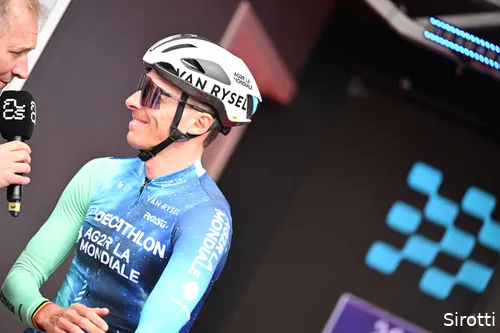
The fact that you raced nine Tours in a row also gives you a lot of knowledge in that regard.
"Exactly. You also start spotting mistakes in others. You see riders blow themselves up before a climb. That was me in my early years, too. Now I can identify it and guide the younger guys by comparing my files to theirs and pointing out the differences."
Despite the support role you're talking about, you’ve shown you can still deliver results, especially in the classics last spring.
"Absolutely, in the classics. I was still fighting for the podium in the Tour of Flanders, which I like so much. It’s very motivating, because it's what gets me out of bed in the morning. It's what you train for. Luckily, every year, I’ve had flashes of that top form, reminding me I've still got it. At some point, you worry about losing that. But in 2024, I was competitive in every classic, so that’s reassuring."
I spoke with Luke Rowe and he said, quote, I don't know how the fuck it's possible that Oli has never won a race like this when you look at his results.
"I’ve often been in a position to finish with the best, but winning? That’s another story. I’ve faced Tom Boonen, Peter Sagan, Greg Van Avermaet, Philippe Gilbert, and now Mathieu van der Poel and Wout van Aert. They’re all fast finishers. I’ve been on plenty of podiums but never managed to snag the win. I’ve always run into someone stronger."
Luke also mentioned how dominant the top four riders are, and how that makes it really tough for a team like Decathlon AG2R to win a classic.
"That’s absolutely true. Our ambition is to win a classic, but when Mathieu races six of those and wins five, there’s not much left to compete for. Not to mention that everyone else is lining up to claim that sixth win. Of course, you hope for that victory, but the race is about more than just the win. If we can finish the spring with some strong podium results, we can call it a successful season. We have to be honest about that."
How do you intend to achieve that?
"We need to create a crystal-clear plan for how we want to race. In recent years, we often didn’t have clear role assignments, but now the goal is to approach each race with a strategy that maximizes our chances of success. And that plan needs to be adapted to each rider's specific strengths.
For example, something we didn’t consider in the past was the possibility of everyone coming back together later on in the race. Groups would suddenly come back together, and no one would have any energy left. Now, we need to have the courage to designate someone to conserve their energy throughout the entire race, no matter what happens. Our team is becoming more professional, and this is part of that process. We're looking at every detail."
Are you aiming for another Tour selection as well?
"I’d never turn it down. It’s always an honor, and you can always tell that if you’re not in the Tour, you’re not really relevant. Being on a French team helps too, that's a bonus. So far, the team leaders have always asked about me. That's nice, because it makes it easier for me to get into the selection."
Difficult question, but what has really changed at Decathlon AG2R in the past 12 to 24 months?
"We've taken so many steps. Van Rysel involves us in everything, from development to R&D and beyond. They are very demanding and ask a lot from riders like me, but it results in lots of truly top-quality equipment. This year, I’m especially curious about the new clothing we’re going to get. It’s supposed to be incredibly fast. I hope it will be as revolutionary as the bike we got last year.
But it’s also the simple things. I heard about another team flying to Spain at 5:30 in the morning via Charleroi, but we take a private plane with the entire team. That makes a difference, both for team cohesion and to create a premium feeling. I don't know if it's necessary, but it all helps. They even ask, for example, if I prefer an aisle or window seat, so it really goes that far. Things like that wouldn’t have crossed my mind 12 or 24 months ago. They’re small examples, but still."
When you said 12 months ago that the bike was ridiculously fast, that triggered quite a few raised eyebrows. After all those wins, did you ever think: it’s nice to know I was right?
"My brother texted me, saying: you need to stop hyping up that bike because if you end up performing badly, everyone’s going to use it against you. But it really was that good. A lot of friends asked me if I was told to say that by the team, but I wasn’t. It could’ve backfired on me, but I was still relieved. The difference was so noticeable that I couldn’t not talk about it."
Read also
IDL-productions
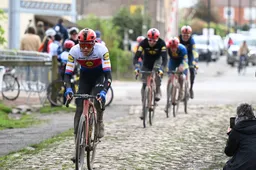
Last year, he was spot on: Lidl-Trek team leader De Jongh names his spring surprise for 2026
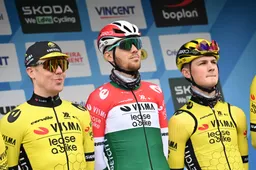
Attila Valter on why he left Visma | Lease a Bike: 'If it is what it is after three years, its not going to change'
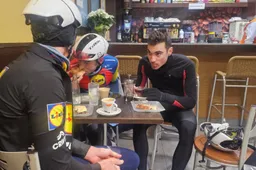
Still in black, but soon in colorful Lidl-Trek jersey: Juan Ayuso praises new environment
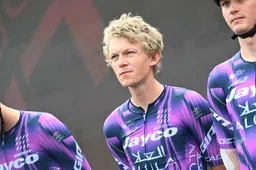
Bouwman not afraid to change at 32 after first disaster year outside of Visma: 'Have to be honest with myself'
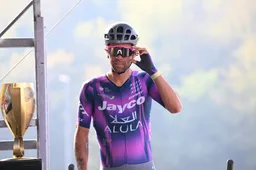
Sanremo, a world title and the yellow jersey: Michael Matthews escaped death - and that reignited his spark
Latest Cycling News
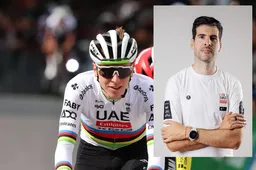
'Get to know 'the man behind Tadej Pogacar's success' at UAE Emirates-XRG

Last year, he was spot on: Lidl-Trek team leader De Jongh names his spring surprise for 2026
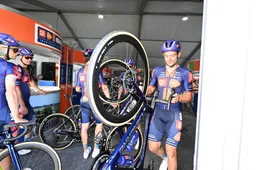
After Onley's departure, Picnic PostNL say farewell to domestique Edmondson - who has chosen to retire
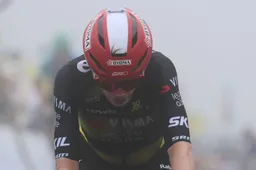
Danish cyclist of the year-election leads to furious resonses: 'People vote for the rider they like most'
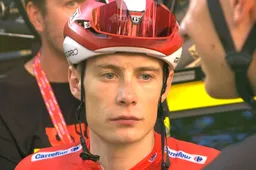
Vingegaard looks back on 'most memorable podium ceremony ever' at Vuelta: 'A disgrace for cycling'
Popular Cycling News

After Onley's departure, Picnic PostNL say farewell to domestique Edmondson - who has chosen to retire
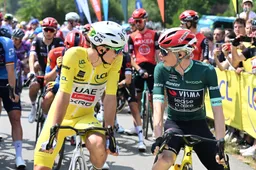
Crazy record? Jonas Vingegaard seems to take legendary KOM from Pogacar - but it turns out to be a guy on a scooter

Vingegaard looks back on 'most memorable podium ceremony ever' at Vuelta: 'A disgrace for cycling'

Danish cyclist of the year-election leads to furious resonses: 'People vote for the rider they like most'

'Get to know 'the man behind Tadej Pogacar's success' at UAE Emirates-XRG
Latest Comments
- Those events are mental rest for him. Fun, without expectations. *Sagan lost his abilities because he gained weight and got lazy. Pogi will likely retire before that has a chance at happening.Veganpotter14-12-2025
- Ah, the consequences of riding for Israel.Veganpotter11-12-2025
- Pidcock could follow everyone but Pogi while finishing 3rd. No second place rider this season😃Veganpotter16-11-2025
- Now the Palestinian protestors can stop their whining. Trump came to the rescue. So they can now STFU and go back to waving the rainbow flags.raufus15-10-2025
- Cracked the code lol. If it was that easy to 'crack the code' jonny Vegas would be charging up the Kwaremont giving Pog a dose of his medicine. Evenepoel can't match pog on a climb and neither can mvdp. Anything with a half difficult climb and Pog smashes the field. Even on flat(ish)parcours like Roubaix it came down to a mistake and crash by pog to definitively crown mvdp. MSR is the only one that Pog probably won't win.kevpt10-10-2025
- We've seen this movie before. I think Pogacar is doping.DeadBlow10-10-2025
- 👍Bea08-10-2025
- 👌🏻Bea08-10-2025
- What the data doesn't show is how much of an effect drafting had for evenepoel. Pogacar went with del toro at 100km whilst Evenepoel was still in the bunch. Despite the bike changes he still had a lot of assistance getting back to the bunch. Pogacar then rode 60km solo whilst evenepoel rode with Healy/Skjelmose until going solo in thd last 10-15km. Thats ~20% less power / energy requirements for 45-50km. Apples and oranges...kevpt30-09-2025
- 👏👏Bea24-09-2025
Loading

